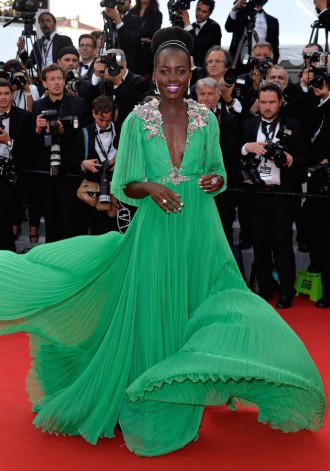Carey Mulligan On ‘Suffragette,’ Civil Disobedience & Feminism [VIDEO EXCLUSIVE]
Carey Mulligan stars in Suffragette as a working women in London during the height of the women’s rights movement.
Carey Mulligan Video Interview On Suffragette
Mulligan’s character, Maud Watts, is a composite of women at the time that received an unexpected call to action to fight for women’s suffrage. Toiling during the working hours as a laundress while maintaining her domestic duties as a wife and mother at night, putting energy into campaigning for the right to vote didn’t seem important to Maud – until it seemed vital.
“She’s just sort of getting by day to day, trying to survive, and kind of apathetic and kind of reluctant to be involved in any of the women’s causes,” Mulligan told uInterview in an exclusive video interview. “She meets these women at the start of the story who sort of inspire her and give her an idea of what her life could be like if she got the vote.”
In London in the late 19th and early 20th century, Emmeline Pankhurst, played by Meryl Streep in Suffragette, was a major leader in the women’s rights movement. It was she who encouraged the suffragettes to take action, as their speechifying was yielding no results. Under Pankhurtst’s leadership, the suffragettes motto became “Deeds Not Words.”
“[Pankhurst] encouraged people to be militant and to go out. People threw rocks into glass windows at shops and they scorched golf course greens and they chained themselves to railings and blew up houses and churches,” said Mulligan. “Their whole ethos was to take action and to not harm human life, but to destroy the things that mattered to men, which were property and communications.”
When asked whether she could see herself among the rock-throwing, fire-sparking masses, Mulligan struggled to commit herself to the possibility of partaking in such acts of civil disobedience. Whether or not she would rise to such an occasion, the British actress, who says she came into her own feminist identity during adulthood, believes that the women in Suffragette could be an inspiration for others.
“It’s hard to say that I would have the bravery and the courage to be able to do what these women did for myself,” Mulligan admitted. “I think part of what we loved about the film was the idea that this could inspire people to take action for somebody else, for someone who does need something that we already take for granted.”
Suffragette is currently in wide release.
She’s a fictional character; she’s based on lots of accounts of working women at the time. As she starts the story, she’s a mother, she’s married and she’s working in the laundry. She’s just sort of getting by day to day, trying to survive, and kind of apathetic and kind of reluctant to be involved in any of the women’s causes. She meets these women at the start of the story who sort of inspire her and give her an idea of what her life could be like if she got the vote.
The militant suffragette movement happened after 40 years of women peacefully campaigning and petitioning for the vote. There were countless attempts for the legislation to be passed and it just didn’t have any effect, so Emmeline Pankhurst believed that the next step was to take action and that words and trying to be peaceful in the campaign wasn’t gonna work anymore. So she encouraged people to be militant and to go out. People threw rocks into glass windows at shops and they scorched golf course greens and they chained themselves to railings and blew up houses and churches. Their whole ethos was to take action and to not harm human life, but to destroy the things that mattered to men, which were property and communications. So that was their next step, attempt.
It’s so difficult, I’ve been asked this a lot. It really goes to show the desperation these women had reached and so many women did go to these lengths. Thousands of suffragettes were put in prison during the time of the militant movement, and these were all sorts of women from working classes to upper classes. It’s a really difficult question, because we live in such a different world today. It’s hard to say that I would have the bravery and the courage to be able to do what these women did for myself. I think part of what we loved about the film was the idea that this could inspire people to take action for somebody else, for someone who does need something that we already take for granted. There are so many women across the world who are still largely in the same position that women were in England a hundred years ago and to try to inspire other people to take action for them.
I think it was as an adult. I think it was something that wasn’t really a part of my… I mean, I think I had sort of feminist values as a child instilled in me, but it wasn’t something I was really conscious of, and I think it was as an adult when I entered the workplace, I guess, and left school that I started really understanding women and feeling proud of them.
RELATED ARTICLES
Get the most-revealing celebrity conversations with the uInterview podcast!



![Carey Mulligan On ‘Suffragette,’ Civil Disobedience & Feminism [VIDEO EXCLUSIVE]](https://cdn-o9.uinterview.com/wp-content/uploads/2015/11/news-carey-mulligan.jpeg)

 Click here for the Cannes Film Festival 2015: Best Dressed Slideshow
Click here for the Cannes Film Festival 2015: Best Dressed Slideshow




Leave a comment